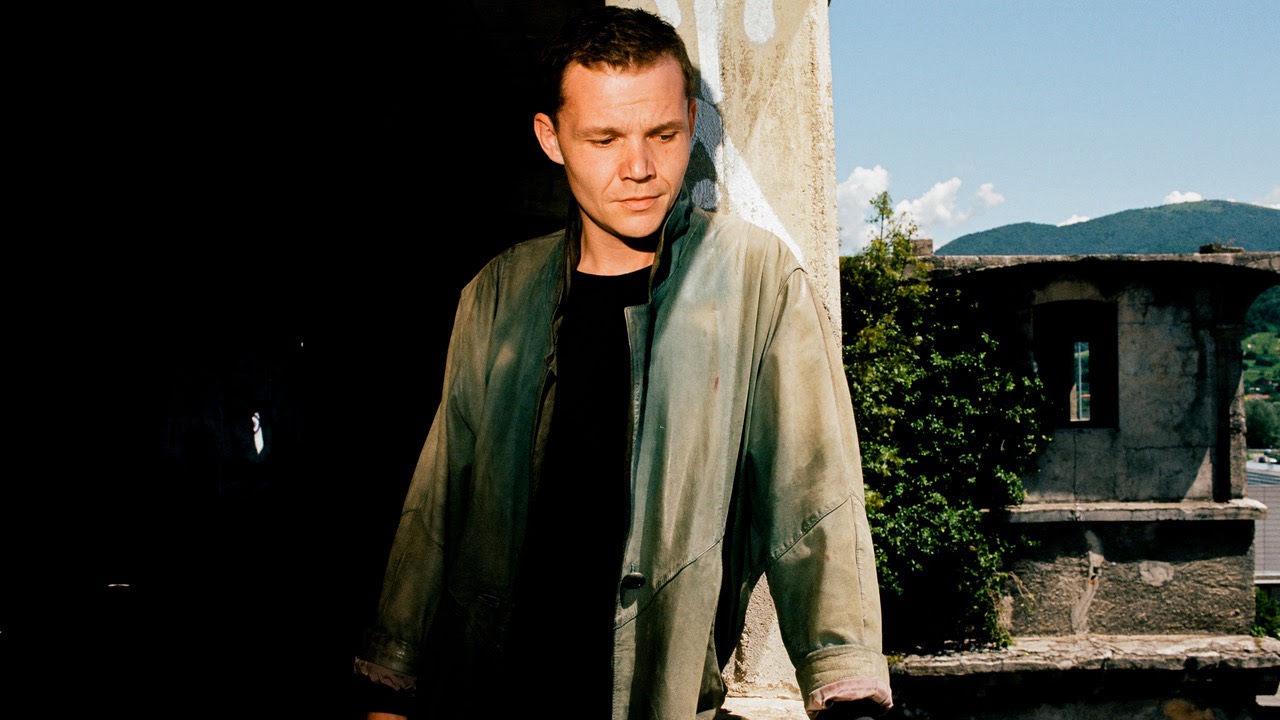Will Westerman moved from London to Greece four years ago, but with his new album A Jackal’s Wedding, he considers that he may never feel entirely settled in his new home. His third album as Westerman explores ideas of transience familiar to anyone who’s moved to a new city or even toured their music through them, with the synths and drum machines of his familiar sophisti-pop sound framing the moments of solitude one can still manage in the midst of life’s chaos. “A lot of the imagery which emerged was more fragmented and fleeting,” he tells us of these songs, which were tracked between tours, “like hurriedly written postcards which have been dropped in the sea, and where half of the ink has been blurred away.”
With the help of producer Marta Salogni, who’s previously worked with Björk, Depeche Mode, and FKA twigs, Westerman also shaped these songs around his surroundings—not just his new hometown of Athens, but the 17th century mansion on the island of Hydra in which A Jackal’s Wedding was recorded. As he tells us, the thick heat of the nights he spent there with Salogni was a major influence on how these songs turned out, while transient moments away from home on tour seemed to be the seeds for the record’s 11 tracks. Naturally, he also shouts out the warm worlds captured by the late Dutch cinematographer Robby Müller, perhaps best known for his work on Wim Wenders’ road movies Paris, Texas, Kings of the Road, and Alice in the Cities.
With the record arriving this Friday via Partisan, find Westerman’s list of five non-musical influences below. You can also check out his newly released live video for the single “Spring” below.
Filopapou Hill (Athens)
I didn’t know anyone when I moved to Athens in October of 2021. I like walking alone, and for the first few months of being in Athens I would alternate between working on An Inbuilt Fault and traversing the city. This hill and the ancient road which led down to Piraeus within which you can still observe the crevices dug by wagons over two thousand years ago became a particular sanctuary. You can pretend you aren’t in a city at all here. The light changing observed from this hill gave the foundation for the aesthetic principles I wanted to capture on A Jackal’s Wedding.
The heat
Marta Salogni and I ended up making the majority of this record at night, due to the intensity of the heat which is relentless during July and August in Greece. The air becomes thick when the heat is great enough and without punctuation. I think the necessity of night working and the thickness of the air both bled into what we captured.
Travel
Previously I had more or less arrived at a window of recording with the songs already mapped out. This record was tracked between tours and because of that the threads I had were more loosely arranged when beginning to record. A lot of the imagery which emerged was more fragmented and fleeting, like hurriedly written postcards which have been dropped in the sea, and where half of the ink has been blurred away. The record had more room to take on the properties of the specific moment in time in which it was captured.
Familiars
The folkish tendency to demonically personify the unexplainable was and continues to be prevalent in our collective consciousness. Some other idioms for the previously unexplainable natural phenomenon of A Jackal’s Wedding include:
In Korea:
“The day of the tiger’s marriage” (호랑이 장가가는 날)
In German-speaking regions:
“The deviless gets beaten” (Eger country, Bohemia)
“The witches are making butter” (Silesia)
In France, it’s either:
“The devil beats his wife and marries his daughter” (“Le diable bat sa femme et marie sa fille”)
Or:
“The devil beats his wife to have crêpes” (“Le diable bat sa femme pour avoir des crêpes”)
Robby Müller’s cinematography
I watched Claire Pijman’s documentary Living the Light – Robby Müller some time ago. There’s a scene in this documentary in which Müller breaks from the cityscape he’s been instructed to capture to follow the chart of a bird. Marta and I are convinced of the power of happy accidentals in recording being where the magic truly lies. Müller’s ability for presentism in his work is exemplary, and many of his shots could be put up large in galleries as still photographs, such is the beauty of his eye.







